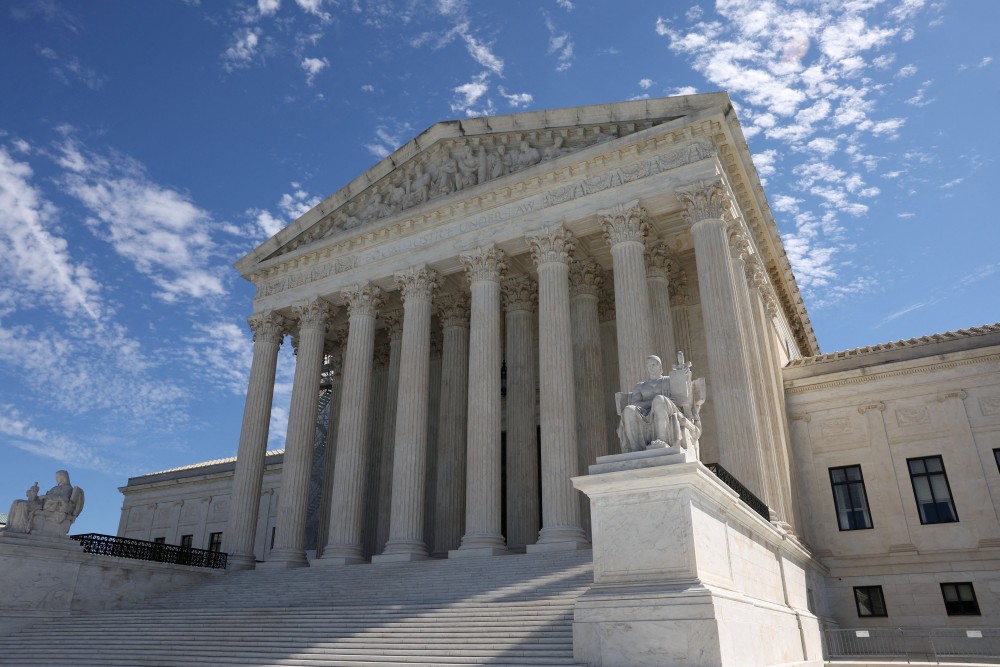
WASHINGTON — The U.S. Supreme Court declined, without comment, March 18 to take up an appeal by an Indiana Catholic couple whose child was removed from their home when they did not accept the teen’s transgender identity.
The child, named in court filings as “A.C.,” was born male but five years ago wished to be identified as female. The parents, Mary and Jeremy Cox, refused to agree to this change, saying they were motivated by their religious beliefs about human sexuality.
In 2021, the state of Indiana began investigating the Cox family and later removed the 16-year-old from the family’s home and placed A.C. in a home that “affirmed” the child’s transgender identity.
“This is what every parent is afraid of. We love our son and wanted to care for him, but the state of Indiana robbed us of that opportunity by taking him from our home and banning us from speaking to him about gender,” the parents said in a statement when the case was sent to the Supreme Court. The couple is represented by the Becket Fund for Religious Liberty.
After the nation’s high court rejected their appeal, the Coxes said that losing custody of their teen because of their beliefs “will stay with us forever.” They also said in a statement that they will “continue to fight for a future where parents of faith can raise their children without fear of state officials knocking on their doors.”
In January, the court declined to take up a dispute about a transgender student’s bathroom access.
In the Indiana couple’s appeal, they said the state violated their parental rights, free speech, and free exercise of religion. They also said they were concerned that similar cases like theirs would continue to occur.
A brief filed with the Supreme Court Feb. 15 by Becket attorneys said the couple’s case “presents a legal question of nationwide importance: when can the state muzzle parental speech and remove a child from the home of admittedly fit parents?
“Amid this fraught landscape, with the lives of real children and families hanging in the balance, this court should grant this petition and affirm its precedents on the right of fit parents to custody of their children,” the filing said.
“If this can happen in Indiana, it can happen anywhere,” Lori Windham, vice president and senior counsel at Becket, said in the group’s press release. “Tearing a child away from loving parents because of their religious beliefs, which are shared by millions of Americans, is an outrage to the law, parental rights, and basic human decency.”
The state’s removal of A.C. was prompted by abuse allegations against the Cox family, which were ultimately dropped, but the state still argued that the “disagreement over gender identity was distressing to their child” and contributed to an eating disorder.
The Indiana Court of Appeals upheld the child’s removal from the home, and it also upheld a gag order, preventing the parents from discussing gender with their child other than at family therapy appointments.
The state claims that the family’s dispute is now moot because their child has since turned 18, but the parents have said they wish to hold the state accountable for its actions.
The Indiana Supreme Court declined to review the case.
Mark Rienzi, a professor at the Columbus School of Law at The Catholic University of America and a senior counsel for Becket, wrote about this case for the blog “Mirror for Justice,” part of Notre Dame University’s Program on Church, State & Society. He emphasized that Indiana is not the only state that has passed laws that allow state courts to take jurisdiction over minors to enable them to receive medical interventions for gender transitions.
California and Minnesota have similar laws, he said, and Maine is considering one while Washington has passed a law that allows teens to “effectively emancipate themselves by going to shelters which will help facilitate social and medical transitions — it’s then up to the state, not the parents, how long the teens can stay. The state doesn’t even have to notify the parents of the child’s whereabouts.”
Rienzi had hoped the Supreme Court would take up the Indiana case, stressing that it should look at this now, “not years from now, when more families have been torn apart.”
“These disturbing cases will only continue to multiply until, and unless, parental rights are established. Loving families should not have their children removed because the parents disagree with state officials about gender,” he wrote.
